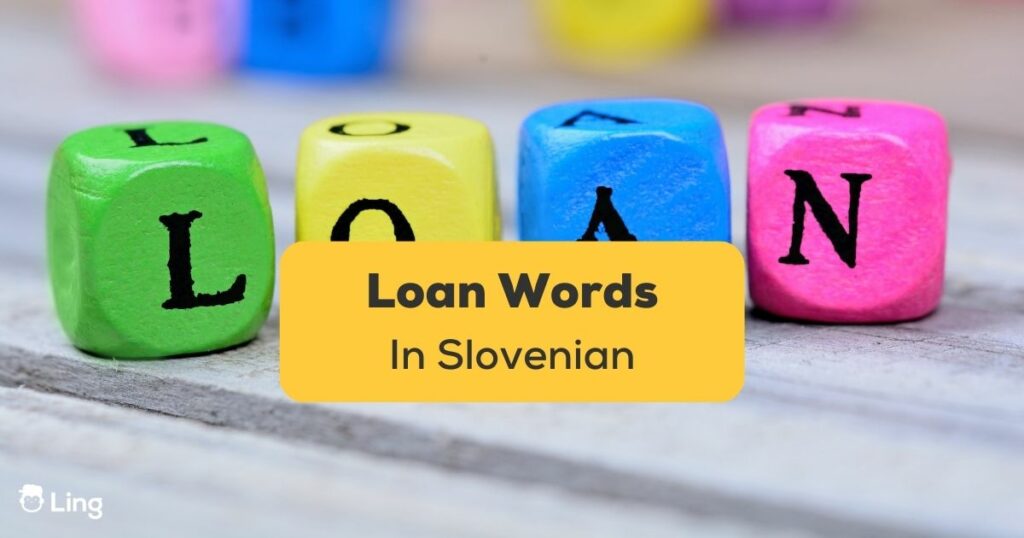Slovenian is a unique language, combining influences from many neighboring cultures. While most of the vocabulary is Slavic, many loan words have been adopted over time. This blog post will look at the different loan words in Slovenian, providing a snapshot of its diverse linguistic origins. We’ll also explore how these words have shaped modern language and how they are used in everyday conversation. By the end of the post, you should have a better understanding of the fascinating history of the Slovenian language.
What Are Loan Words?
Loan words are words taken from one language and adapted into another. Loanwords can come from any language, but in many cases, they originate from a language other than the one they are used in.
In Slovenian, loanwords are words taken from foreign languages and adapted into Slovenian. The most common foreign languages to provide loanwords to Slovenians are English, German, Italian, French, and Hungarian. Loanwords make up a significant portion of the Slovenian lexicon and are essential to understanding the language’s development.
Loanwords can be either borrowings or calques. Borrowings involve taking a word from one language and adapting it to fit the phonology and morphology of the new language. Calques involve translating the word or phrase literally and then using it in the new language. For example, the English word ‘television’ has been borrowed into Slovenian as ‘televizija,’ while the phrase ‘high school’ has been calqued into Slovenian as ‘visoka šola.’
Loanwords can also be classified as either formal or informal. Formal loanwords are those used in formal or official contexts, such as in media or government documents. Informal loanwords are those used in everyday conversations and generally have a more casual feel.
In short, loanwords are words taken from foreign languages and adapted into another language. These words can come from any language and vary in complexity, with some being borrowed directly and others being calqued. Loanwords feature in different textbooks are essential to the Slovenian language and can be classified as either formal or informal.
The History Of Loan Words In Slovenian
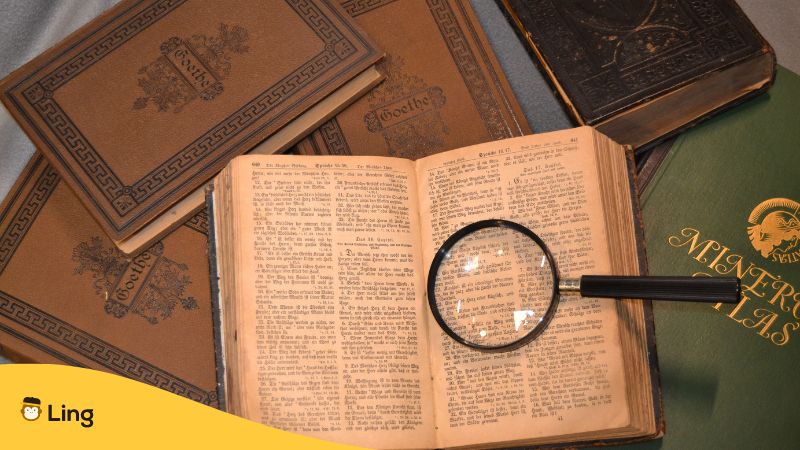
Loan words, or “loan translations,” are borrowed from other languages and incorporated into a speaker’s native language. The history of loan words in Slovenian stretches back centuries and is a reflection of the many cultures and languages that have influenced Slovenia over the years.
The first recorded loan words in Slovenian come from Latin. During the Middle Ages, as part of the Habsburg Monarchy, Slovenian was subject to several influences from Latin, which can be seen in many of the loan words from this period. For example, the phrase komunikacija (meaning “communication”) is derived from the Latin communication. Similarly, vesolje (“universe”) comes from the Latin universum.
As Slovenia came under German influence during the 19th century, many German loan words were adopted into the Slovenian language. Some of these terms are still widely used today, such as gospodar (“landlord”) and zbirka (“collection”). Other German loan words, such as tehnologija (“technology”), have become increasingly popular in recent years.
In addition to Latin and German, Slovenian has also adopted loan words from Hungarian, Italian, and Czech over the centuries. These loan words can be seen in terms such as mož (“husband”) from Hungarian, impresario (“impresario”) from Italian, and kostel (“church”) from Czech.
Overall, loan words have been essential in developing the Slovenian language. They have enriched the language and helped it to evolve to keep up with changing times.
The Most Common Loan Words In Slovenian
Slovenian has a long and rich history of borrowing words from other languages. These loan words come from German, English, Italian, French, and Hungarian sources. While some loan words have been used for centuries, others are more recent. Let’s learn about all the general and English loanwords in the Slovene language.
German Words
Some of the most common loan words in Slovenian include those from German that have made both linguistic and social integration possible. These words often describe the technology, government, and everyday objects.
Let’s look at more such words.
| Slovenian Loan Words | English Translation | Slovenian Loan Words | English Translation |
| Ajd | Buckwheat | Kravžati | To Cower |
| Aktualizirati | Actualize | Krompir | Potatoes |
| Amputirati | To Amputate | Marelica | Apricot |
| Bager | Excavator | Modernizirati | To Modernize |
| Bambus | Bamboo | Nor | Crazy |
| Boja | Fight | Pil | Drank |
| Bombardirati | To Bomb | Princ | Prince |
| Cilj | Goal | Rasa | Race |
| Crkljati | To Cuddle | Šank | Bar |
| Drek | Shit | Študent | A Student |
| Gasa | Gas | Študirati | To Study |
| General | General | Šunka | Ham |
| Ikona | Icon | Tetovirati | Get A Tattoo |
| Ingver | Ginger | Trajekt | The Ferry |
| Ja | Yes | Vaga | Scales |
| Janež | Anise | Volfram | Tungsten |
| Klavir | Piano | Žaga | A Saw |
English Words
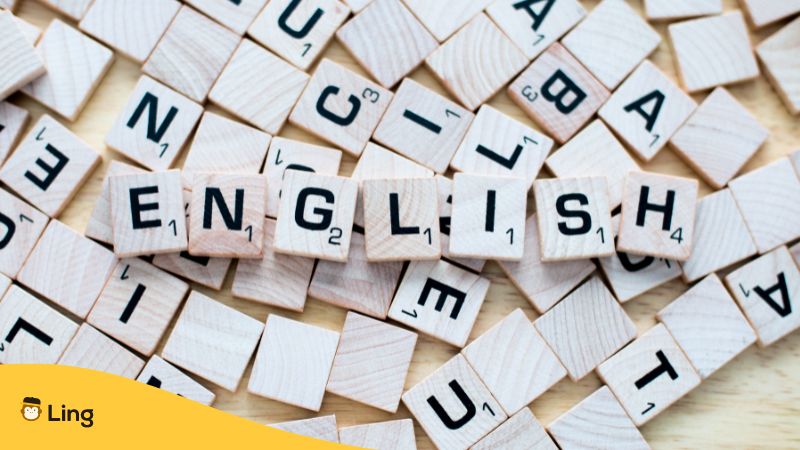
English is another major source of loan words in Slovenian. Many English terms related to modern technology and culture have found their way into Slovenian. Let’s look at more words.
| Slovenian Loan Words | English Translation |
| Bar | A Bar |
| Brek | Break |
| Buldog | Bulldog |
| Dres | Jersey |
| Džez | Jazz |
| Evro | Euro |
| Gol | Goal |
| Pearl Harbor | Pearl Harbor |
| Pulzar | Pulsar |
| Spam | Spam |
| Teksas | Texas |
| Tramvaj | Tram |
Italian Words
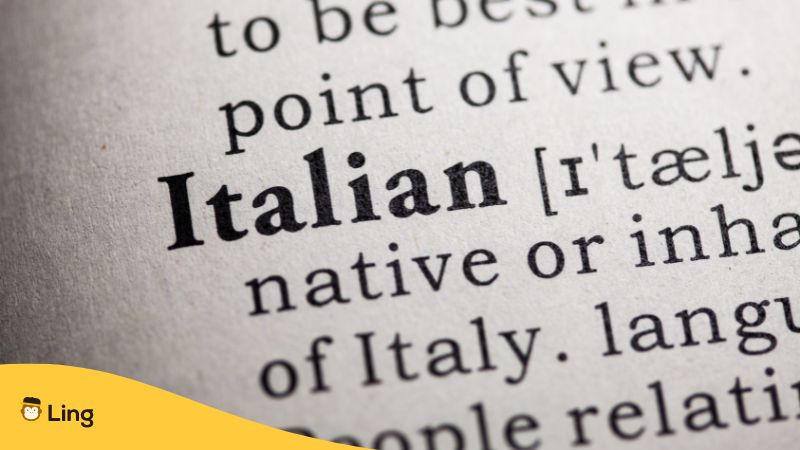
Italian has also contributed many loan words to the Slovenian language. Here are some more words for you to learn.
| Slovenian Loan Words | English Translation |
| Adijo | Bye |
| Agrumi | Citrus Fruits |
| Bajta | Byte |
| Barantati | Bargain |
| Barka | The Barge |
| Bokal | Goblet |
| Borša | Borscht |
| Brek | Break |
| Briga | Don’t Care |
| Cokla | Clogs |
| Čao | Bye |
| Čembalo | Harpsichord |
| Fant | Boy |
| Fin | Fin |
| Frekvenca | Frequency |
| Malarija | Malaria |
| Melancana | Melancana |
| Pica | Pizza |
| Sonet | Sonnet |
| Škatla | Box |
| Violončelo | Cello |
French Words
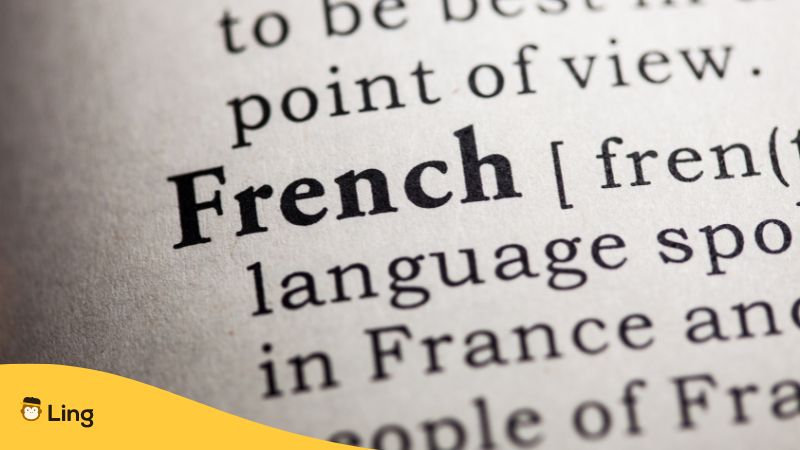
French loan words in Slovenian include many related to fashion and clothing, such as “salon” (salon), “šampon” (shampoo), and “žamet” (velvet). Here are some more useful Slovenian loanwords for you.
| Slovenian Loan Words | English Translation |
| Apartma | Apartment |
| Bajonet | Bayonet |
| Beton | Concrete |
| Bron | Bronze |
| Chamonix | Chamonix |
| Diamant | Diamond |
| Gepard | Cheetah |
| Hotel | The Hotel |
| Krom | Chrome |
| Plaža | The Beach |
| Portfelj | Portfolio |
| Portret | Portrait |
| Skorbut | Scurvy |
Hungarian Words
Finally, Hungarian has left its mark on the Slovenian language with many loan words for instance, “paprika” (pepper).
Here is a list of loanwords from Hungarian words that could help you expand your vocabulary.
| Slovenian Loan Words | English Translation |
| Betežen | Miserable |
| Bunda | Jacket |
| Orjak | A Giant |
| Soba | Room |
| Šantati | To Shunt |
| Tok | Flow |
Wrapping Up
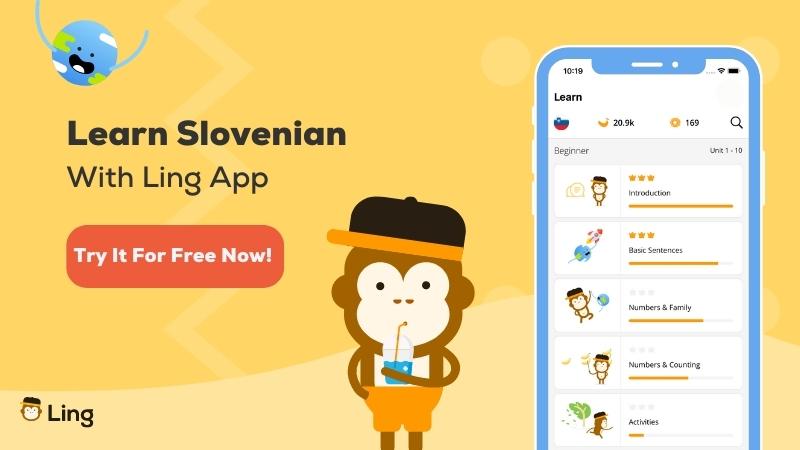
In conclusion, the Slovenian language is a rich tapestry of influences from around the world, with loan words coming from various sources, including German, English, Italian, French, and Hungarian. This mix of influences has shaped the Slovenian language into what it is today.
If you want to learn other Slavic languages, then check out Ling. Besides teaching Slovenian, the Slavic language, Ling also teaches 60+ languages. Download the Ling app for free from Google Play Store or App Store today to discover why it’s the best!
Want to read more informative posts? Check out our blog posts about Slovenian music and Slovenian body parts. Happy Learning!
